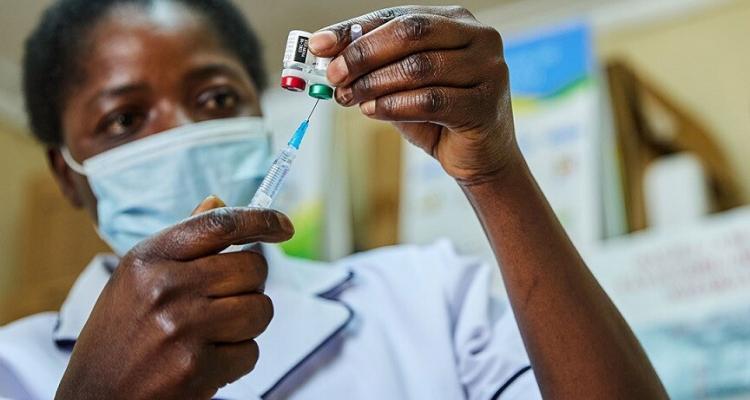
The Malawi Government through the Ministry of Health is expected to roll out Malaria vaccine for children under the age of five starting from 29 November 2022.
Programs Manager for National Malaria Control Program, Dr Michael Kayange said the Country is now making progress in the fight against Malaria with the aim of completely eliminating the disease by 2030.
According to Kayange, as a Ministry there are several interventions which they have put in place to end Malaria by 2030 and one of the interventions is to roll out Malaria vaccine.
“Vaccine is also an addition tool coming to help us in the fight against Malaria. The vaccine has a potential to help reduce number of cases but also reduce number of Malaria deaths. So, we are welcoming the Malaria vaccine into our policies and we believe that it has a potential to reduce malaria by up to 1 million cases and we think that is quite helpful for us as a country.
“We are targeting the children mostly under 5 children and why we are targeting these it is because they are the most affected. When you look at our Malaria burden, it’s actually concentrated on the under 5 children,” explained Kayange.
He further said that the vaccine will be administered to 900,000 children in 11 districts and they will expand to more districts based on the availability of vaccine.
The initial Districts are Karonga, Nkhatabay, Ntchisi Lilongwe, Mchinji, Balaka, Machinga, Mangochi, Phalombe, Chikwawa and Nsanje.
“We have hope that we will expand to more districts especially should the global production of vaccine increase. At the moment, we have a huge shortage of vaccine globally and that’s we are not able to expand to all corners of Malawi. But for a start we will be able to reach out to all children in 11 districts beyond that it will be determined by the availability of vaccine globally,” said Kayange.
The RTS, S vaccine is administered in four doses: at 5 months, 6 months, 7 months, and 22 months of age.
The RTS, S vaccine, which was tested in Ghana, Kenya, and Malawi, took more than 30 years to develop and was approved by the World Health Organization (WHO) in October 2022.
Kayange also hinted that another intervention is regular distribution of mosquito nets in all districts.
“We have changed the mosquito nets that we used to distribute in the past now we have more effective mosquito nets and we are also shortening the period for distribution so that before the mosquito nets run out, we have to go back to the people and give them more mosquito nets so we are working around that so that at all times our people should have mosquito nets,” said Kayange.
He added that they are going to do intensive community engagement so that they influence positive behaviour change on mosquito nets.
According to Kayange, currently about 50 percent of Malawians are not using mosquito nets and they need that 50 percent to be sleeping under mosquito nets so that they can eliminate the disease.
Malaria is still the leading cause of childhood illness and death in Sub-Saharan Africa.














